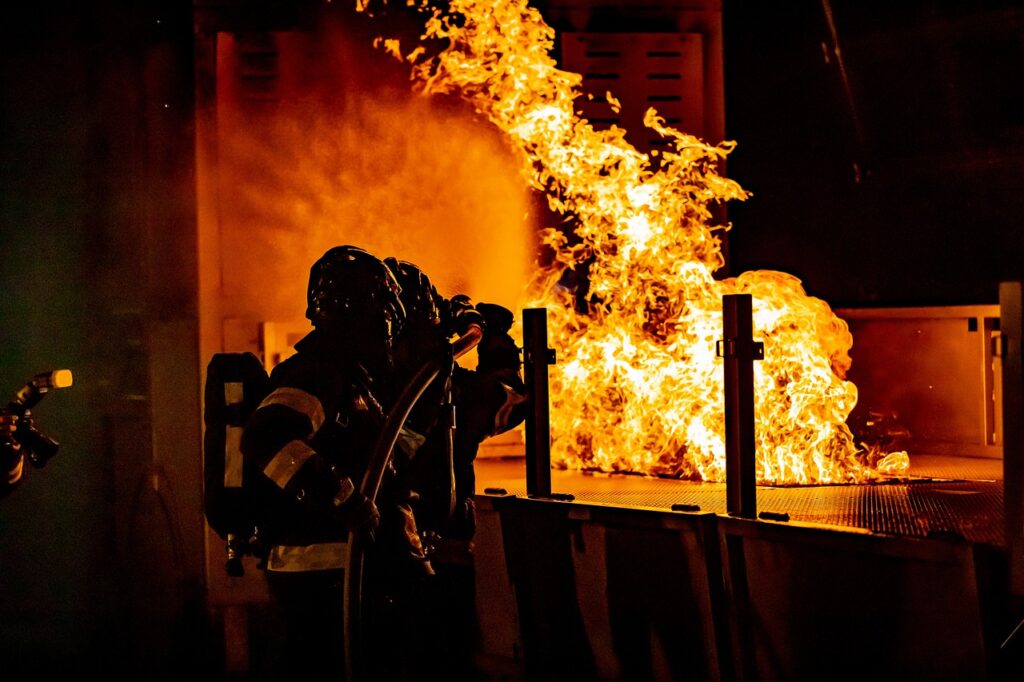Let me ask you question what do you think first when it comes to fire safety? Most of us imagine industrial mishaps or high-profile incidents in commercial spaces. But the truth is, the most dangerous fire hazards are often hidden in plain sight — in our homes and offices.
From outdated wiring to overloaded sockets, a small mistake can quickly escalate into a life-threatening situation. And in a city like Kolkata, with its rich heritage but aging infrastructure and densely populated areas, the risks are even more amplified.
Let’s explore the common, often-overlooked fire hazards in Indian households and workplaces — and how you can take simple steps to prevent disaster.
1. Old & Faulty Wiring – A Silent Threat
Why it’s dangerous:
Many buildings in Kolkata, especially in older neighborhoods like North Kolkata, still rely on decades-old wiring. Brittle insulation, exposed wires, and corroded switches are accidents waiting to happen.
What you can do:
- Get your electrical systems inspected every 5–10 years by a licensed electrician.
- Replace old fuse-based panels with modern circuit breakers (MCBs).
- Don’t ignore signs like flickering lights, sparks, or hot switchboards.
2. Overloaded Sockets & Extension Boards
Why it’s dangerous:
Plugging too many devices into a single outlet or using low-quality extension cords is common — and one of the biggest causes of electrical fires.
What you can do:
- Use only IS-certified power strips with surge protection.
- Avoid daisy-chaining multiple extensions.
- If your power needs exceed a socket’s capacity, install additional outlets safely.
3. Improper Storage of Flammable Materials
Why it’s dangerous:
Storing cooking gas cylinders in cramped spaces, hoarding paint cans, or stacking papers near heat sources — these are often unnoticed fire hazards.
What you can do:
- Store flammable items in cool, dry, and ventilated areas.
- Keep them away from direct sunlight or electrical sources.
- In offices, maintain regular housekeeping audits to avoid buildup of paper, solvents, and cleaning fluids.
4. Kitchen Mishaps: The Most Common Fire Starting Point
Why it’s dangerous:
Unattended cooking, oil spills near open flames, or malfunctioning appliances can quickly turn a kitchen into a fire zone.
What you can do:
- Never leave the stove unattended.
- Keep a fire blanket or small Class B fire extinguisher in the kitchen.
- Ensure your chimney is cleaned regularly to avoid grease buildup.
- Install LPG leak detectors as a precaution.
5. Unsafe Practices During Power Cuts
Why it’s dangerous:
Kolkata still experiences sporadic power cuts, especially during storms. Lighting candles or running generators in closed spaces poses serious fire and health risks.
What you can do:
- Use rechargeable LED lights or battery-powered lamps instead of candles.
- If using a generator, place it outdoors with proper ventilation.
- Never refuel a generator while it’s running or still hot.
Special Note for Kolkata Residents
Kolkata’s charm lies in its historic buildings, but many of these structures have outdated electrical setups, wooden staircases, and limited fire exits. In densely populated areas like Behala, Howrah, or Burrabazar, a fire in one unit can quickly spread to neighboring homes or shops.
Tips for city dwellers:
- Check if your building has clear evacuation routes and accessible extinguishers.
- Talk to your housing society or office manager about fire safety drills and emergency planning.
- In commercial spaces, ensure compliance with Fire Department norms, especially for escape signage and alarms.
Final Thoughts: Prevention is Better Than Panic
Fire safety isn’t just about big plans or expensive equipment — it’s about awareness, vigilance, and smart choices. A few minutes of precaution today could save lives and property tomorrow.
Take action today:
- Walk through your home or office and spot potential hazards.
- Create a basic fire safety plan with your family or team.
- And always keep emergency numbers and exits easily accessible.
📞 Emergency Numbers in Kolkata:
- Fire Service: 101
- Police Control Room: 100
- Ambulance: 102
- WB Fire & Emergency Services HQ: (033) 2214 1426

